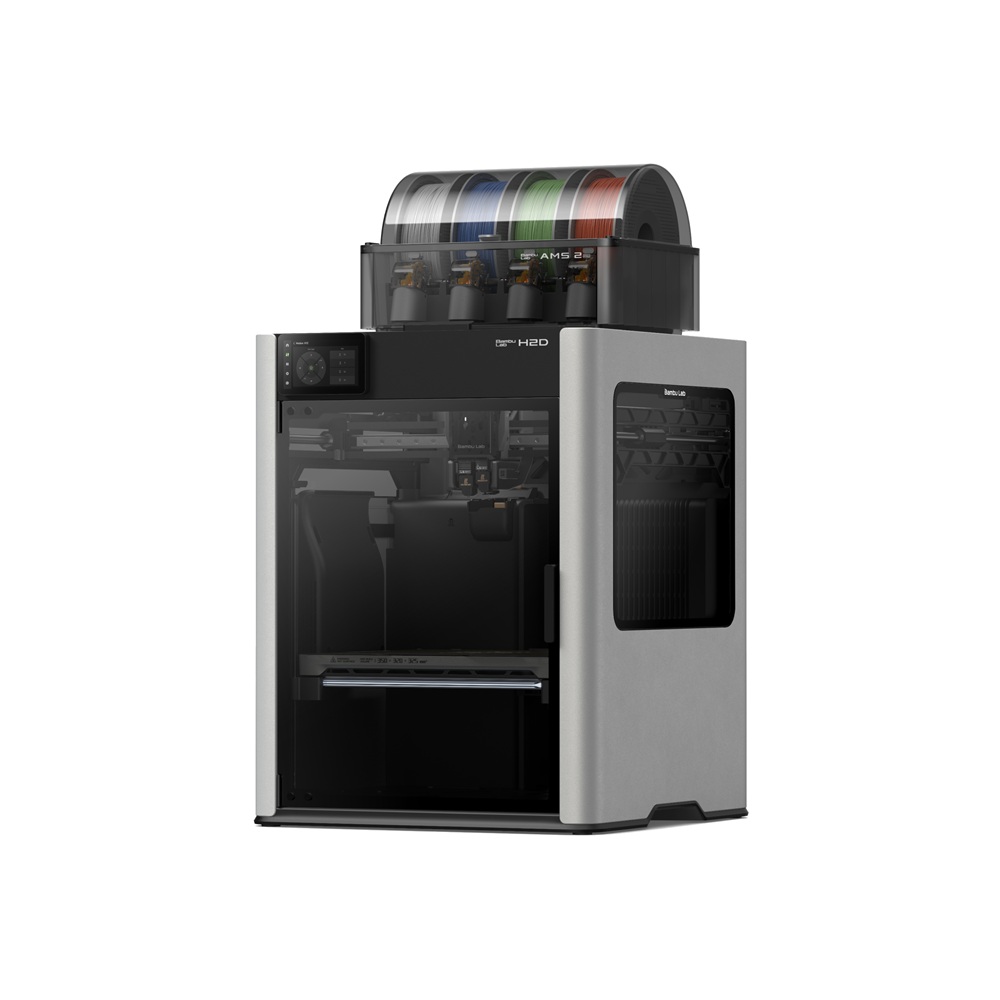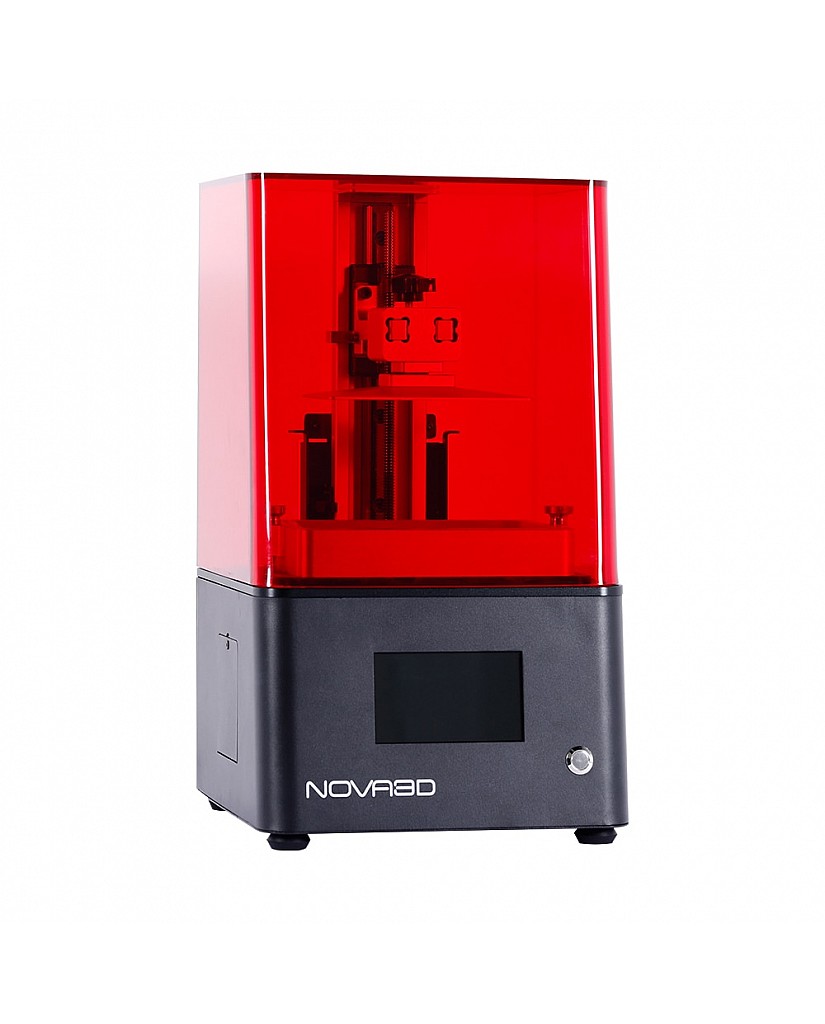Compare H2D vs Bene4
Comparison between the best 3D printers
Choose the best 3D printer at the best price. The cheapest 3D printers are here.
Buy a 3D printer here with 3D Fila.
 |
 |
|
| Model | H2D |
Bene4 |
| Printing Material | Filament | Resin |
| Buy Filament for Bambu Lab H2D | Buy Resin forNova3D Bene4 | |
| Estimated price | $1899,00 | $350,00 |
| Manufacturer | Bambu Lab | Nova3D |
| Release Year | 2025 | 2021 |
| Print Volume [mm] | 350x320x325 | 80x150x130 |
| Printer Size [mm] | 492x514x626 | 240x240x430 |
| Weight [kg] | 42,3 | 9,5 |
| Power Loss Recovery | YES | NO |
| Maximum Resolution [mm] | 0,01 | 0,01 |
| Processor | ||
| Display | Touchscreen 5'' | Display touchscreen 4,3'' |
| Power Supply | ||
| Connectivity | Wifi, Bambu bus, Cartão SD | USB / Wi-Fi |
| Operating systems | Windows, Mac, Linux | Windows, Mac, Linux |
| Date of registration in the system | 2025-03-31 | 2023-03-24 |
| Release date | 2025 | 2021 |
| Extra features | Bambu Labs H2D combines high-speed 3D printing with a chamber heated up to 65 °C, dual extrusion with automatic nozzle switching, an AMS for filament drying and exchange, and AI sensors that detect failures. It offers optional laser and digital cutting capabilities, features intelligent calibration through computer vision, vibration control, enhanced fire safety, and real-time camera monitoring. | The Bene4 Mono Printer stands out for its 6.08-inch 2K monochrome display, which allows for faster curing times and longer lifespan. With print accuracy that rivals its competitors, it offers a factory-pre-leveled build plate, eliminating the need for manual adjustments. It has a hinged lid for easy access and reduced resin mess. The metal reservoir comes with useful features such as pouring aid and maximum level indication. In addition, it has Wi-Fi connectivity and a sleek design with a 4.3-inch touchscreen display. |
| Support for multiple colors and materials (AMS and CFS) | YES | NO |
Notes * |
||
| Cost-benefit | 7 / 10 | 8 / 10 |
| Hardware | 7.2 / 10 | 0.5 / 10 |
| Tela | . | . |
| Print volume | 4 / 10 | 3 / 10 |
| Performance | 5 / 10 | 9 / 10 |
Conclusion |
| In comparing the Bambu Lab H2D and the Nova3D Bene4, it's evident that both printers cater to different needs and priorities within the 3D printing market. The H2D, while significantly more expensive, is packed with advanced features such as high-speed printing, dual extrusion capabilities, and intelligent failure detection. Its larger print volume and robust build suggest it's aimed at more serious hobbyists or professionals who require versatility and exceptional performance in various materials. Moreover, the advanced features like AI sensors and real-time monitoring position it as a top-tier printer for those seeking state-of-the-art technology in their 3D printing endeavors. On the other hand, the Bene4 offers a very affordable, user-friendly option, especially suited for beginners or those primarily working with resin prints. Its smaller print volume and lack of advanced features like automatic recovery or dual material support indicate that it may not be suitable for all applications, especially those requiring larger or more complex prints. However, the ease of use, efficient curing technology, and cost-effectiveness earn it high marks for casual users or educators. In summary, if budget and simplicity are your primary concerns, the Bene4 presents an excellent value proposition. Conversely, for those who can invest more for advanced functionalities and capabilities, the H2D stands out as a more powerful and versatile choice. Your decision ultimately hinges on your specific 3D printing needs and how much you're willing to invest in technology. |

